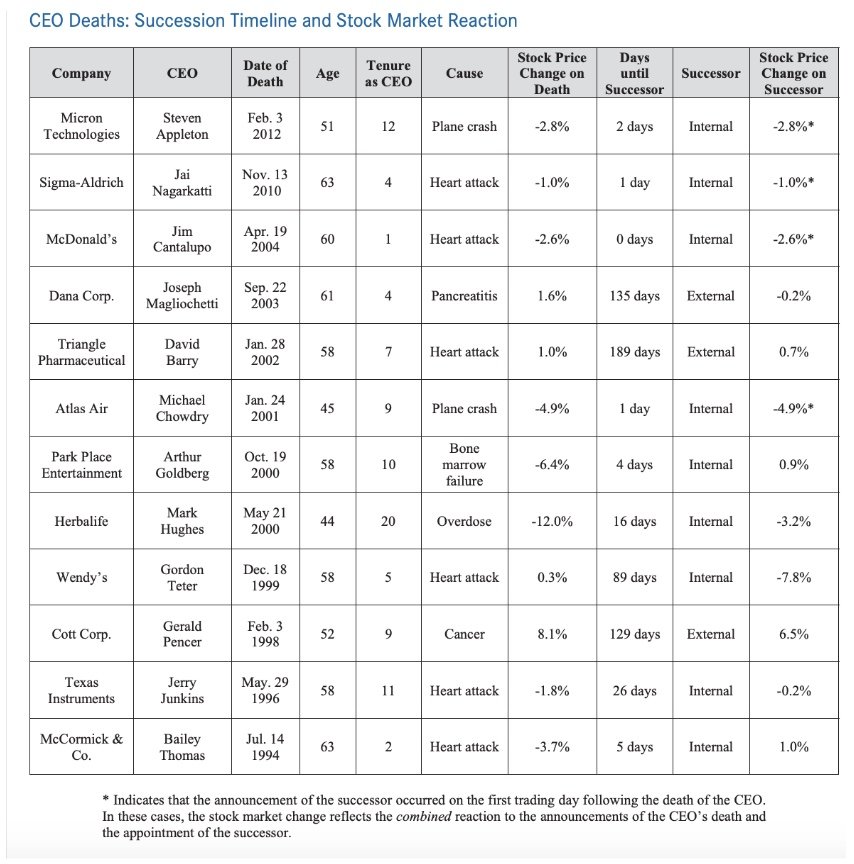The CEO Died
As I’ve been mentioning, we’ve been doing some work and research on succession planning and it was in the course of those efforts that our managing editor Sarahbethgeedub came across this table summarizing a number of unexpected CEO deaths.
Among other data points, you’ve got the company, the CEO, the date, the cause of death, and how the company’s stock price reacted. And looking at this got me to thinking: Which one of these guys was the best CEO?
Certainly it wasn’t Gerald Pencer. It’s a cold shot to die from cancer and have your company’s stock rise 8%. I looked into Pencer’s tenure at Cott (now Primo Water) and it was a period of debt-fueled aggressive growth strategies that pumped up the top line, but destroyed a lot of shareholder value. With his passing, the market clearly hoped for a sea change in strategy.
But on the other end of the spectrum, it probably wasn’t Mark Hughes either. With Herbalife dropping 12% when he suddenly died from a drug and alcohol overdose at the age of 44, the market was recognizing the influence of his vision and marketing zeal on the company he founded. But it also indicates that he got succession planning all wrong or not at all, which is among the most important things a CEO can do for an organization. And Herbalife ended up being taken private within two years because it was still bereft of leadership.
So the ideal reaction is probably that the stock dropped, but not too much. Which means that you’ll be missed, but also that the organization you left behind was prepared for your absence. By that measure, the winner (maybe not the right word?) here was Jai Nagarkatti of Sigma-Aldrich. Nagarkatti spent his entire career working for that company, rising through the ranks. Upon his death the board implemented its succession plan and elevated the CFO to CEO with the market viewing it as a non-event.
Of course, it sounds depressing that the world might (or should) view your death as a non-event, but I think it’s a sign that when you died at least your ducks were all in a row. Because while we’re not all going to be heads of publicly traded companies, we’re all heads of something, and I think an interesting way of thinking about what we do everyday and how we spend our time is asking if we were to die unexpectedly, what would happen to the stock in that thing. If its price would go up, that’s bad. If its price would go down a lot, that’s bad too. But if it would go down, but just by a little bit, maybe that means your ducks are in a row.



